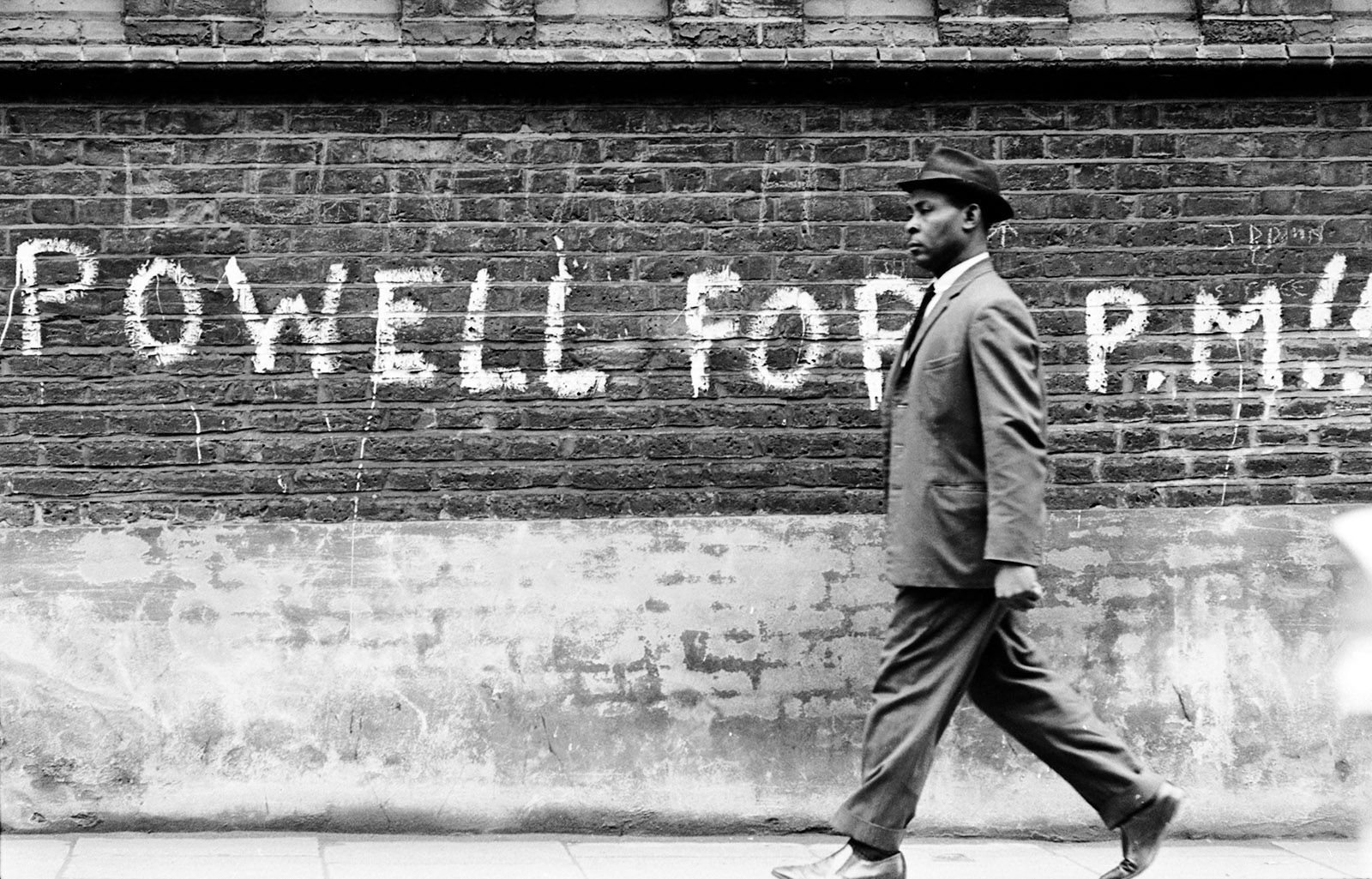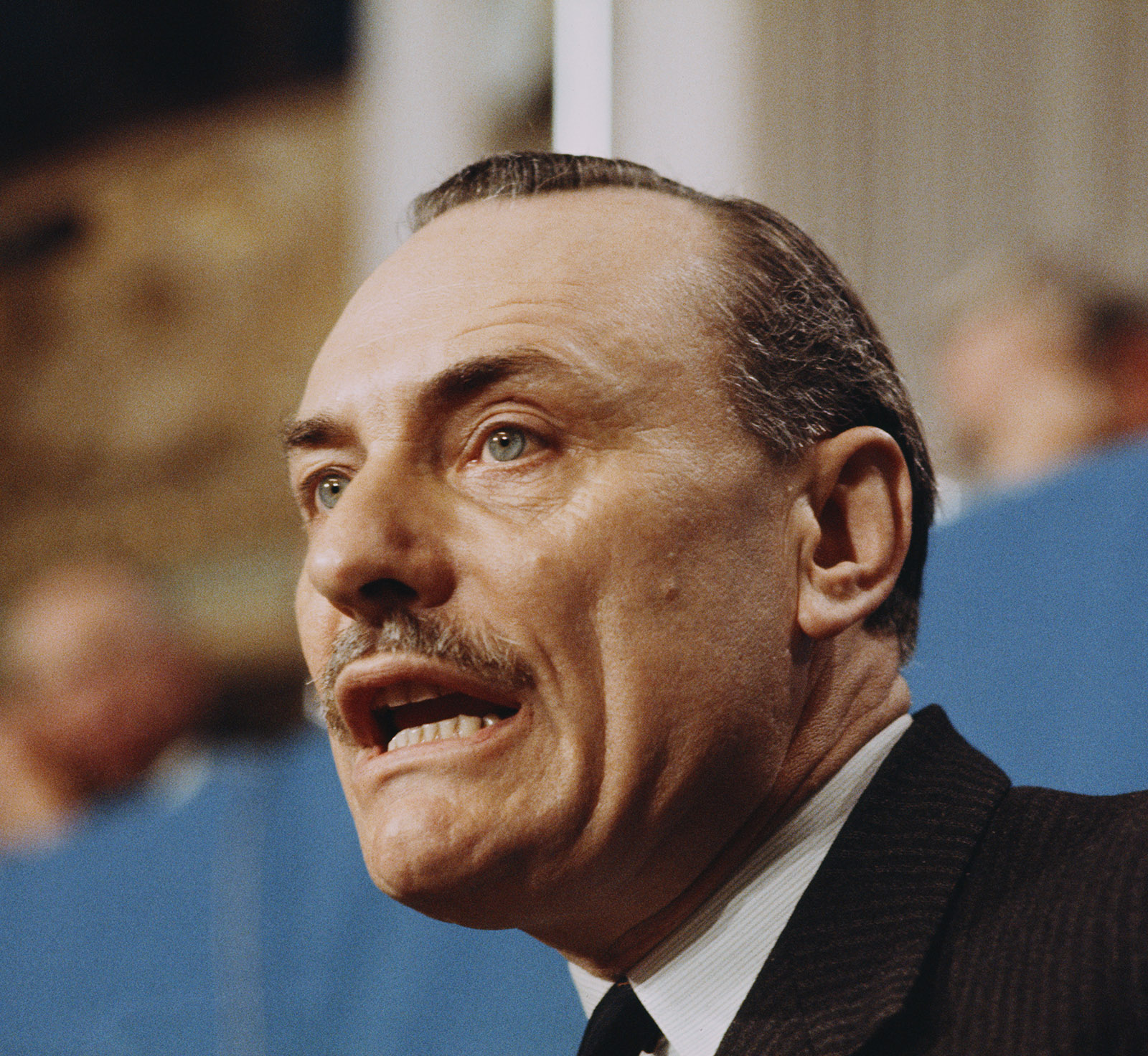This is the first in a series of occasional pieces reflecting on the tumultuous political events of 1968 and their legacy fifty years on.
“You’re being watched!” I lost count of the number of times my father, Bageye, said this to us when we were growing up in social housing in Luton, a small industrial town about thirty miles north of London, in the 1960s. Bageye meant by the warning that, as the children of Jamaican immigrants, we were under surveillance by the native English population, which was primed to judge whether we conformed to the unexamined stereotype of West Indians as feckless, work-shy, and destined for a life of crime.
There were no Jim Crow laws, no “Colored Only” signs in Luton; we were never called by the N-word. But naked hatred would have been easier to deal with. My father felt that the British, with their faux politeness—polite to the point of rudeness—were hypocrites. “Give the American what him due,” Bageye would say approvingly, “not like the Englishman, he will tell you to your face how much he hate you.” But then, on April 20, 1968, just before my seventh birthday, a stern politician from the upper echelons of British society named Enoch Powell delivered with extraordinary intensity an anti-immigration speech that shocked the nation by articulating what the black population had suspected all along: we were feared and despised.
Britain was divided largely between two political parties: on the right, the Conservatives (or Tories); on the left, Labour. On that Saturday in April, at a political meeting in Birmingham (the country’s second-largest city, with a sizable immigrant population), Powell promoted an argument that had been rehearsed by some of his party colleagues during the general election four years earlier in the nearby constituency of Smethwick. There, a number of Tory outliers armed with paint and brush had smeared the town’s walls with the slogan “If You Want a Nigger for a Neighbour, Vote Labour.”
In 1968, Powell went further than this call to action. Trembling with conviction, he spoke of being filled with dread and foreboding about the “colour/immigrant problem.” Likening himself to a Roman general, he transposed the River Tiber to the Thames, which, he foresaw, would be “foaming with much blood” from the racial conflagration that was surely coming if the host population did not wake from its slumber.
In Powell’s conception, the passenger ship Empire Windrush, which had carried one of the first large-scale group of immigrants from the Caribbean in 1948, was a Trojan horse. The West Indians were now an occupying force that threatened the survival of an ancient British civilization. “In fifteen or twenty years’ time,” asserted Powell, quoting one of his constituents, “the black man will have the whip hand over the white man.” In a corruption of the historical truth of the brutalities of plantation life, Powell conjured a fantasy where the former beneficiaries of slavery would now be the victims of whip-wielding black slave drivers. Indeed, Powell argued that there had already been an inversion of the natural order, with native English people cowering before alien hordes. His speech was peppered with disturbing anecdotes, such as one about an elderly white landlady living in an area depleted by “white flight” who risked being attacked by “Negro men” in her home “but for the chain on her door.”
The reception that followed this speech was a “chorus of execration”—anticipated by Powell—as the embarrassed Tory hierarchy, outraged by his irresponsible, toxic speech, sacked him from the opposition’s ministerial ranks the next day. Nonetheless, Powell was embraced by large numbers of white Britons who believed, despite his classicist pretensions, that they were hearing themselves speak. London dockers and porters from the Smithfield meat market marched in his defense bearing placards saying “back him, not sack him.”
On the Tuesday after the speech, thousands of letters arrived at Enoch Powell’s home; the Post Office had to provide a van solely for Powell’s mail. Over the next ten days, the number of letters swelled to 100,000. Only eight hundred expressed disagreement with him; they included a letter from my class.
One morning, Sister Philomena, the headmistress of St. Margaret of Scotland primary school, arrived unexpectedly in our classroom. Summoning me to the front of the class, she reached out and placed a tender arm around my shoulder, pulling me close. She had heard that some of the class (about half of whom were of Irish descent) had been taunting me about the tabloid headlines that suggested, now that the truth-telling “old Enoch” had spoken, that my Jamaican family and I should pack our bags as we were no longer welcome.
Advertisement
Sister Philomena held up a newspaper showing the front page and her voice cracked with anger and disdain as she instructed the class, the Irish kids especially, to be careful what they wished for. I don’t recall the exact excoriating words, but the intent was clear: “If they come for Colin in the morning, they’ll be coming for you in the afternoon.”
And she had a plan. The class would compose a letter to Enoch Powell voicing our disapproval of his speech, telling him why he was wrong. Sister Philomena sat with pen and paper and called for suggestions about what to include. Someone shouted out, “Colin’s done nothing wrong,” and another suggested, “It’s not fair and he’s our friend.” Less reassuring was the judgment of a majority that even if other West Indians had to be sent back, I should be spared and allowed to stay. I recall the days waiting, fully expecting Enoch Powell to reply. He did not.
“Give me the child until he is seven,” say the Jesuits, “and I will give you the man.” On April 20, 1968, Enoch Powell completed my early education, confirming an unsettling belief that had in recent months begun to take shape in my fertile imagination: my color vexed some people’s spirits.
The views expressed in the “Rivers of Blood” speech seemed especially popular among vocal working-class people, some of whom lived in our housing project. But in the immediate aftermath of the speech, when we were brave enough to open the front door and take a peek outside, we did not see any baying crowds.
Ostensibly, nothing had changed. But everything had changed. Increasingly, we’d overhear Bageye and his friends warning: “Don’t get too comfortable, man. It nah good to stay in white man country so long.” My mother, Ethlyn, who’d never been fully reconciled to life in England, began subscribing to the Jamaica Gleaner. Every week, it carried advertisements for plots of land for sale in Jamaica, and I’d watch nervously the care with which Ethlyn would take an ink pen and circle the most promising ones.
Overnight, it seemed, we began to feel our position was temporary and grew more suspicious and fearful, not just of our English hosts but of one another. There were only a dozen or so Caribbean families scattered across the more than one thousand houses on the estate. In the months after Powell’s speech, the housing authorities in Luton decided to move in a West Indian family next door to us. I imagine it was well-intended as a benign act, but Bageye fumed. We stood behind him, peeking around the curtain as the new neighbors arrived with a vanload of furniture. “Imagine this,” said Bageye. “I travel four thousand miles to get away from these people and who do they put next door?”
Perhaps Bageye meant it as a joke, but it was born of self-consciousness: that we would be perceived as multiplying, to appear more numerous than we actually were. As we approach the fiftieth anniversary of this cornerstone of Powellism, the origins and identities of those considered immigrants to Britain have changed, but you can detect among them the same sort of anxiety that Bageye expressed.
Muslims have largely replaced West Indians and their offspring as the primary bogeymen of British society in recent decades. Suspected of failing to conform to a unifying idea of national identity, Muslim Britons are more likely to be demonized and be the target of prejudice than any other group. Reassuring images—such as the devout Muslim athlete Mo Farah wrapping himself in the Union Jack—do little to dispel the general paranoia that there are in our midst myriad British-born terrorist-sympathizers whose adolescent bedrooms are adorned with the black flag and Arabic lettering of the so-called Islamic State. Today, the fear of a brown man with a beard is at least as intense as that of a black youth in a hoodie.
What, then, is the abiding lesson of the “Rivers of Blood” speech? The answer is found in the British referendum on the vote to leave the European Union, which had centred on the downsides of supposedly excessive immigration. Brexit seemed to reprise and conflate the arguments of Powell and the Tories in Smethwick. Instead of a Latin classicist, we now had the politician Nigel Farage, a private-school-educated populist, complaining: “If a group of Romanian men moved in next door to you, would you be concerned?… if you lived in London, I think you would be.”
But Farage was not just barking and dog-whistling to sections of the white population hostile to “foreigners”; he was also appealing to people who looked like me. My brother voted to leave the European Union. I was shocked. When I asked him why he’d voted for Brexit, he said furtively: “I had to act in the best interests of my family.” As we spoke, I felt as though my brother was looking over his shoulder, determinedly saying the right thing for any eavesdroppers, and I thought again of Bageye’s caution from half a century ago: “You’re being watched.”
Advertisement
My brother was not alone: more than a quarter of black people and those of Asian descent voted for Brexit. Having endured fifty years of suspicion, voters once characterized by Powell as “charming, wide-grinning pickaninnies” embraced the same nativist sentiments of the author of “Rivers of Blood.” Enoch Powell’s supporters cast him as a prophet, but the blue-eyed contrarian would not have been amused to see the spectrum of those who now champion his views; he’d have been appalled by this latest example of the law of unexpected consequences. The watched have joined the watchers.



